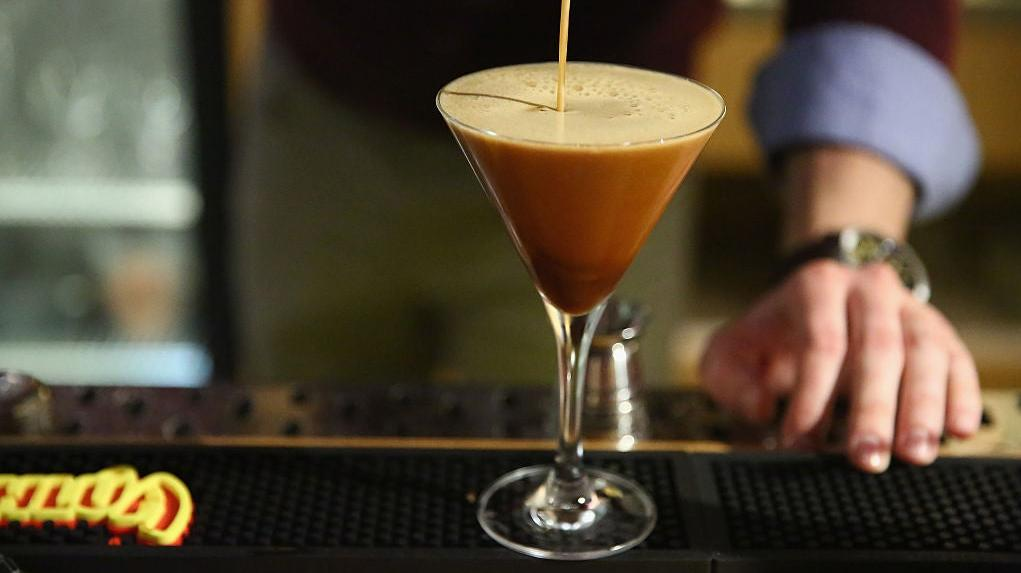No Shit, Espresso Martinis Are Bad For You
A New York Post article calls the drink's comeback “destructive.” We don't buy it.
Today began as any other: with a cursory scroll through the day's Weenie Takes. A Weenie Take can be anything—a blog, an article, a tweet—but it must offer a weenie's point of view on popular culture. "Men should avoid short shorts" is a Weenie Take. "Spicy food is bad" is a Weenie Take. Today's Weenie Take involves the espresso martini, which New York Post writer Johnny Oleksinski calls "ubiquitous, perky, delicious . . . and a menace to society and personal health." Weenie alert!
In the article, Oleksinski writes that the drink has "proliferated like rats under outdoor dining sheds." Google Trends data confirms the proliferation, showing a notable spike in searches for "espresso martini" in December of 2021. Whether the proliferation is rodent-like is questionable, although I'm sure Oleksinski cracked his knuckles and sighed with self-satisfaction after penning such a winning simile.
But I'm not here to litigate Oleksinski's use of literary devices. I'm here to express my distaste for Oleksinski's core argument: that espresso martinis are terrible for you; thus, espresso martinis should be avoided. Boo! Weenie!
Are espresso martinis bad for you?
Well, yeah. It's booze! Excessive boozing has been linked to a host of conditions, including high blood pressure, heart disease, stroke, and liver disease. Moderate boozing isn't great, either—Oleksinski cites a study, published in March in JAMA Network Open, which declares that any amount of drinking increases your risk of cardiovascular disease.
Oleksinski's argument also hinges on the fact that espresso martinis contain caffeine, which can impact sleep. But alcohol consumption is also linked to poor sleep quality and duration. If you're hitting the town and slamming 'em down, you're in for a rough night of sleep regardless.
Oleksinski also cites a Mount Sinai cardiologist, who explains that "coffee can improve the taste of alcohol." The cardiologist points out: "Sometimes people may not realize how much they may be consuming, and as a result, they end up drinking more alcohol than they would if they would order a glass of wine." Finally, Oleksinski cites the sweeteners in espresso martinis, which "make it much more fattening than a normal martini or basic vodka soda."
Sorry, but the same could be said of anything containing blue Curaçao. A giant tiki cocktail tastes like pure fruit juice and is packed with more sugar than an Easter Peep. Where is the New York Post screed on blue Curaçao? Well, weenies? Where is it?
Ultimately, I don't buy Oleksinski's claim that the espresso martini's comeback has been "destructive." Is the drink creating a culture of fear and loathing among metropolitan bartenders? Is it linked to catastrophic health outcomes otherwise unseen in social drinkers? Is it truly problematic in any way? No—at least, no more problematic than Oleksinski's claim that the drink is "over-the-counter crack for faux-sophisticates." It's 2022, Johnny. We don't use "crack" to describe tasty treats anymore. Maybe spend a little less time panicking over espresso martinis and a little more time unpacking why you, a white man, feel comfortable declaring that the Broadway revival of "For Colored Girls" has "lost its edge." Weenie.
